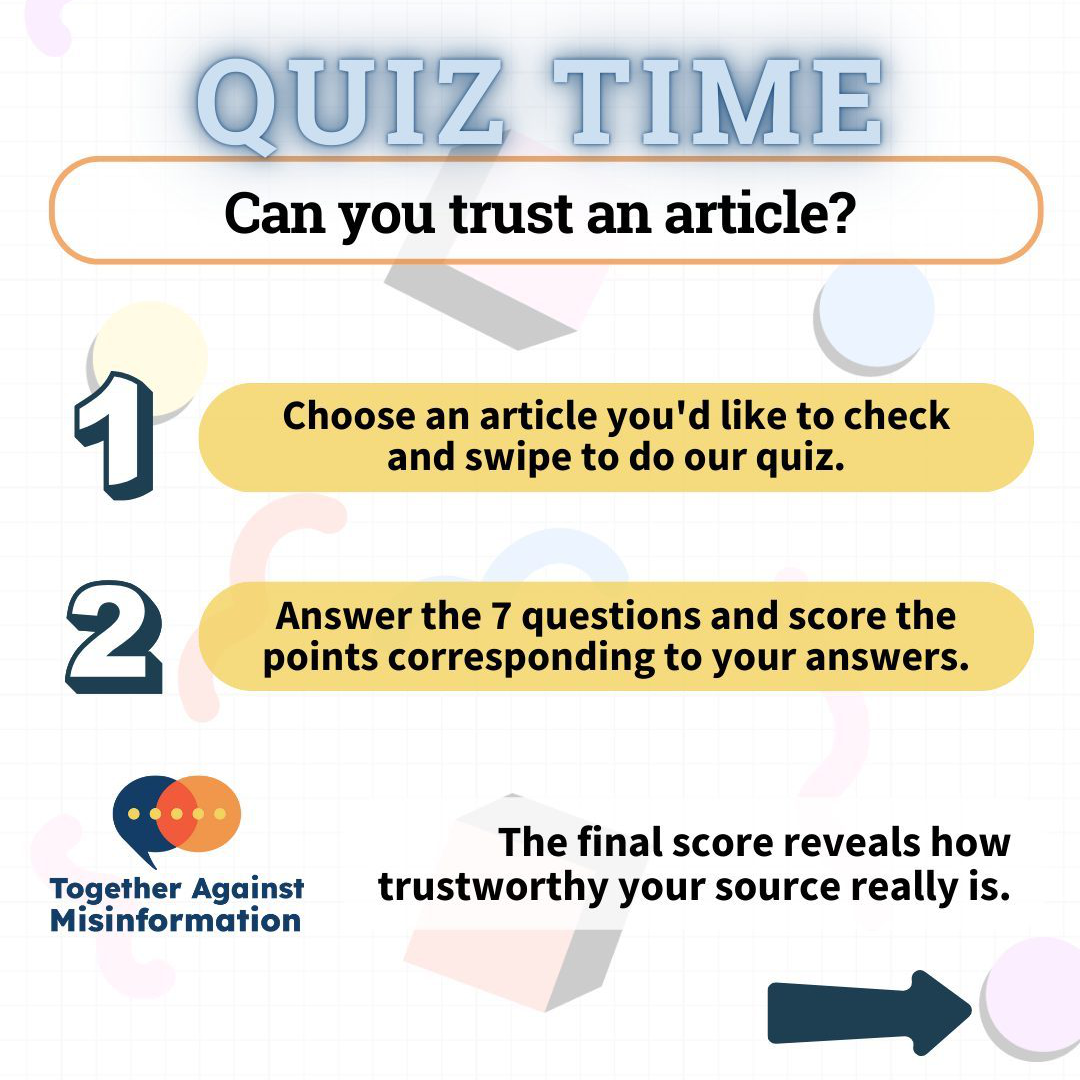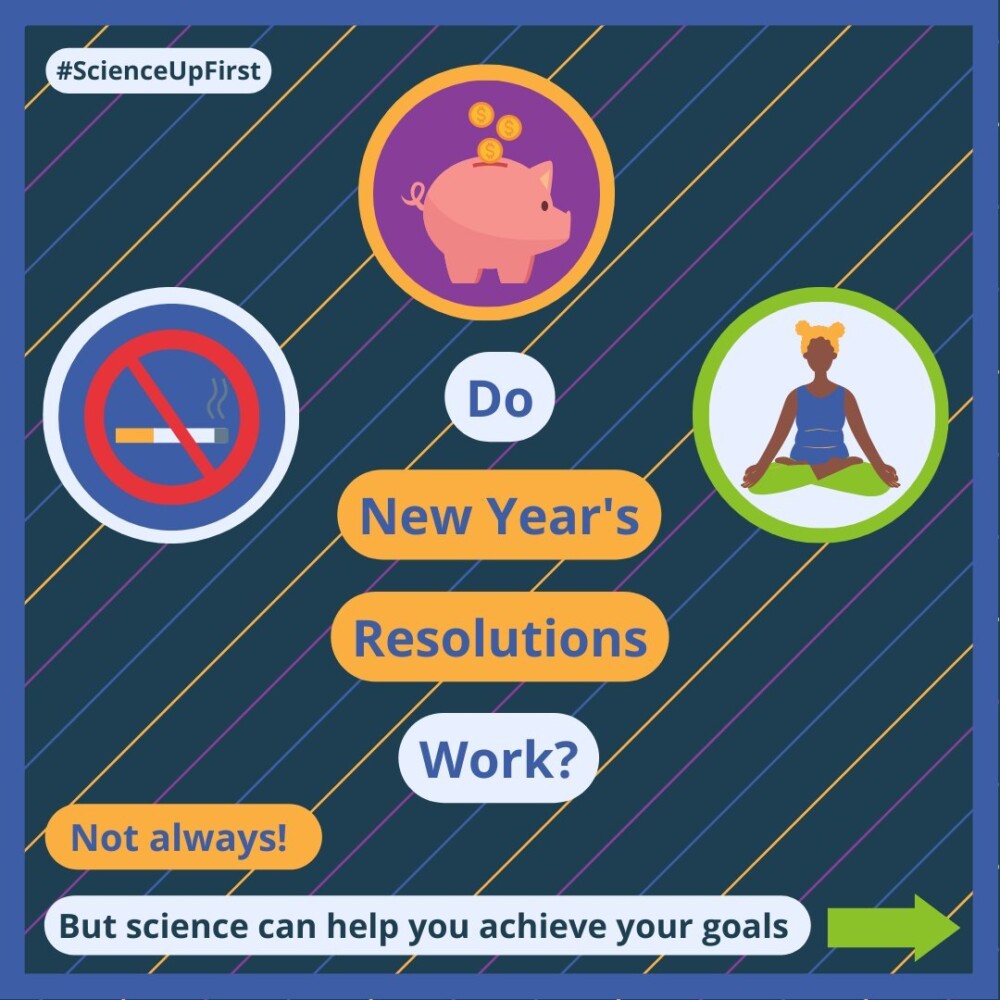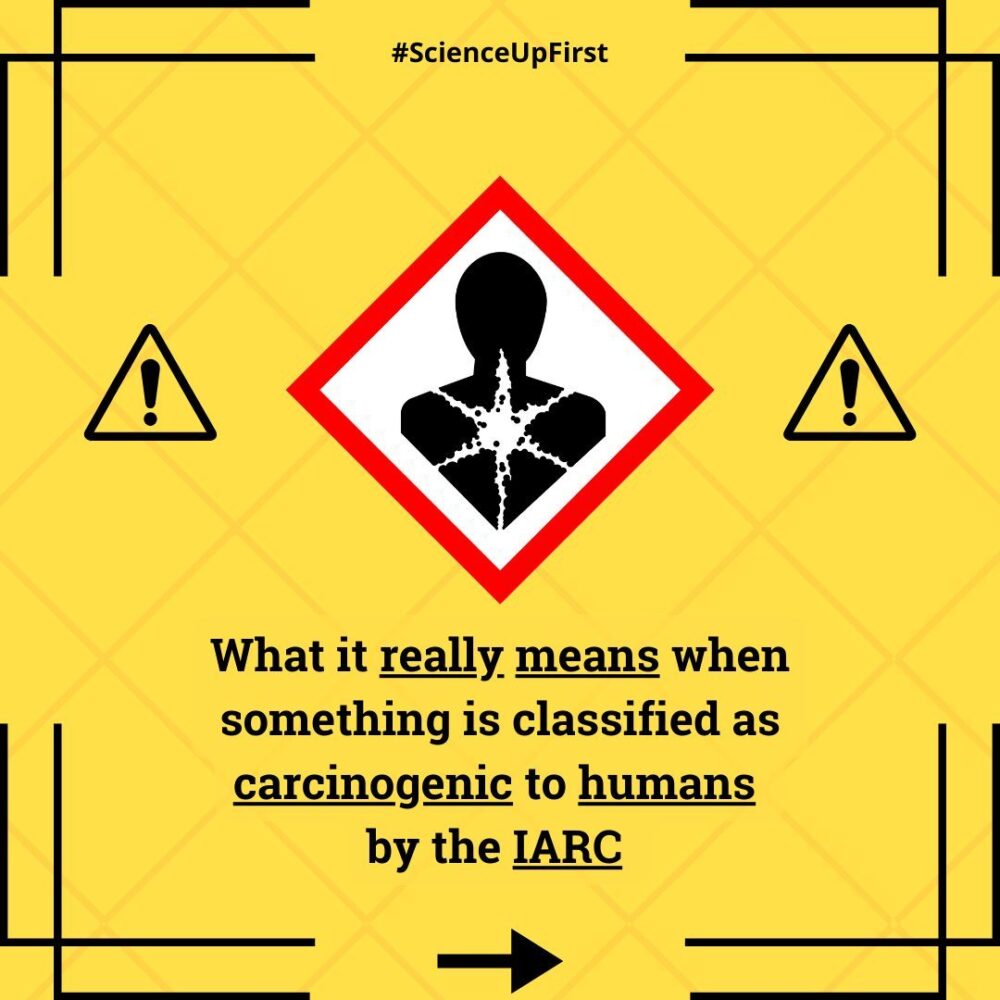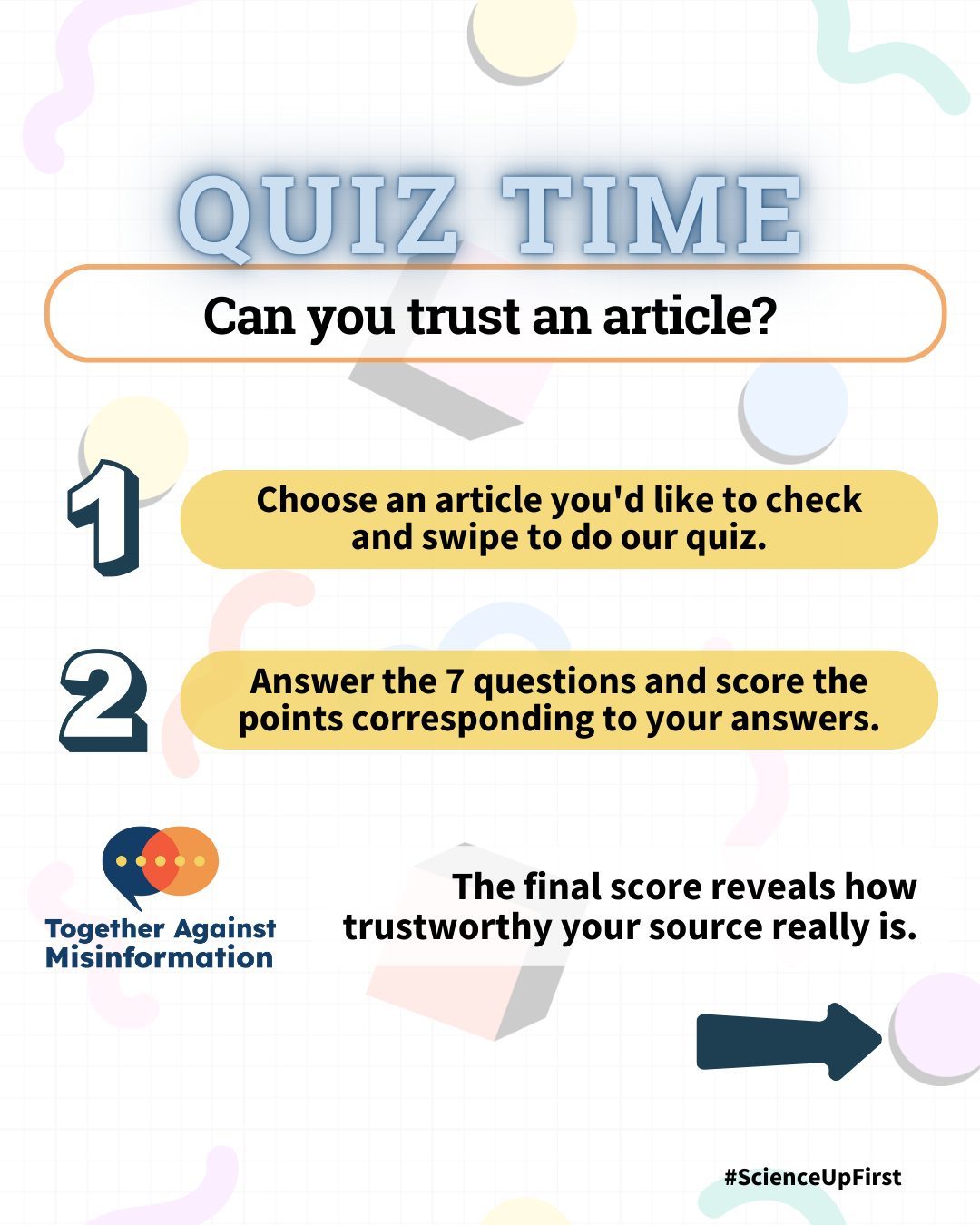
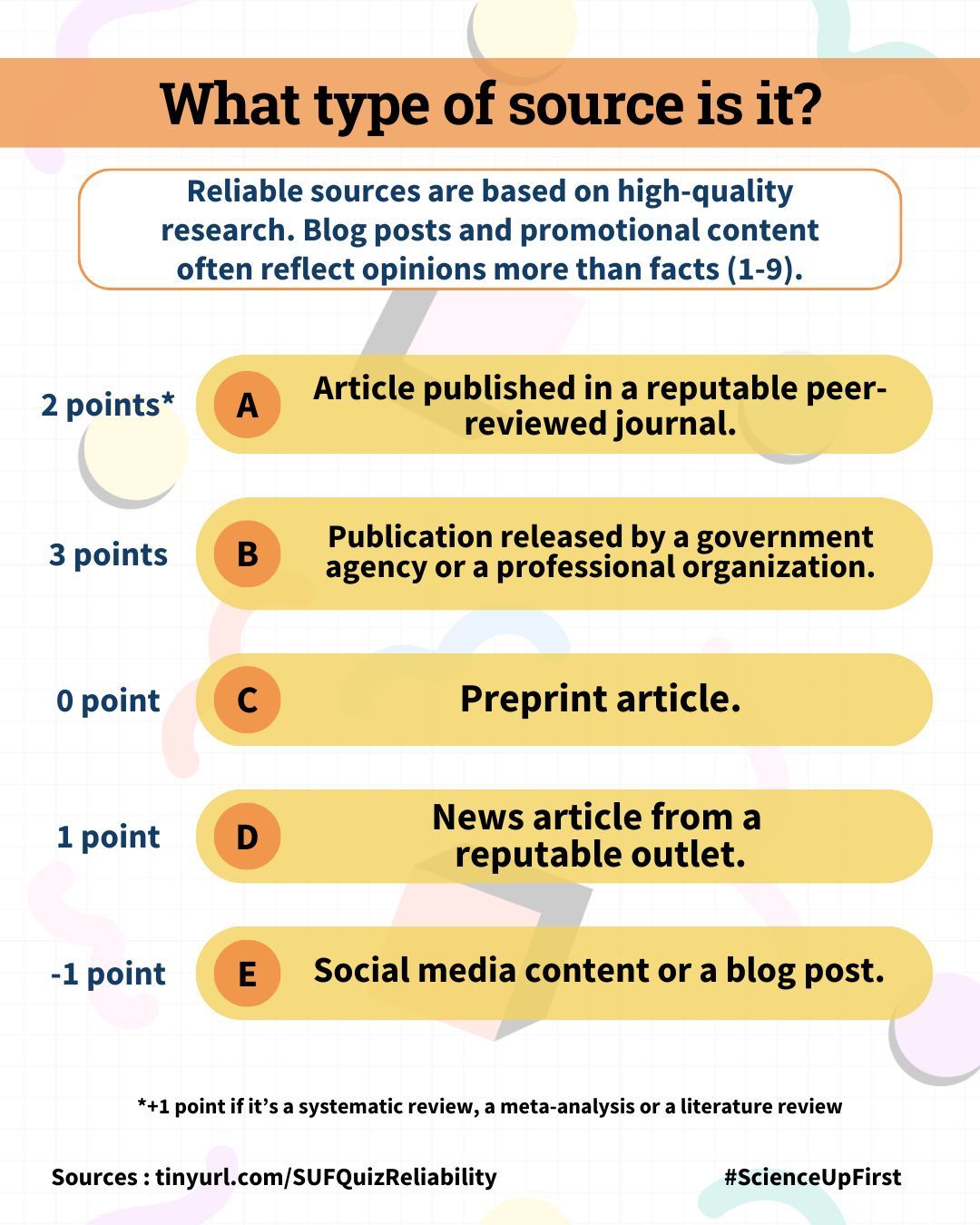
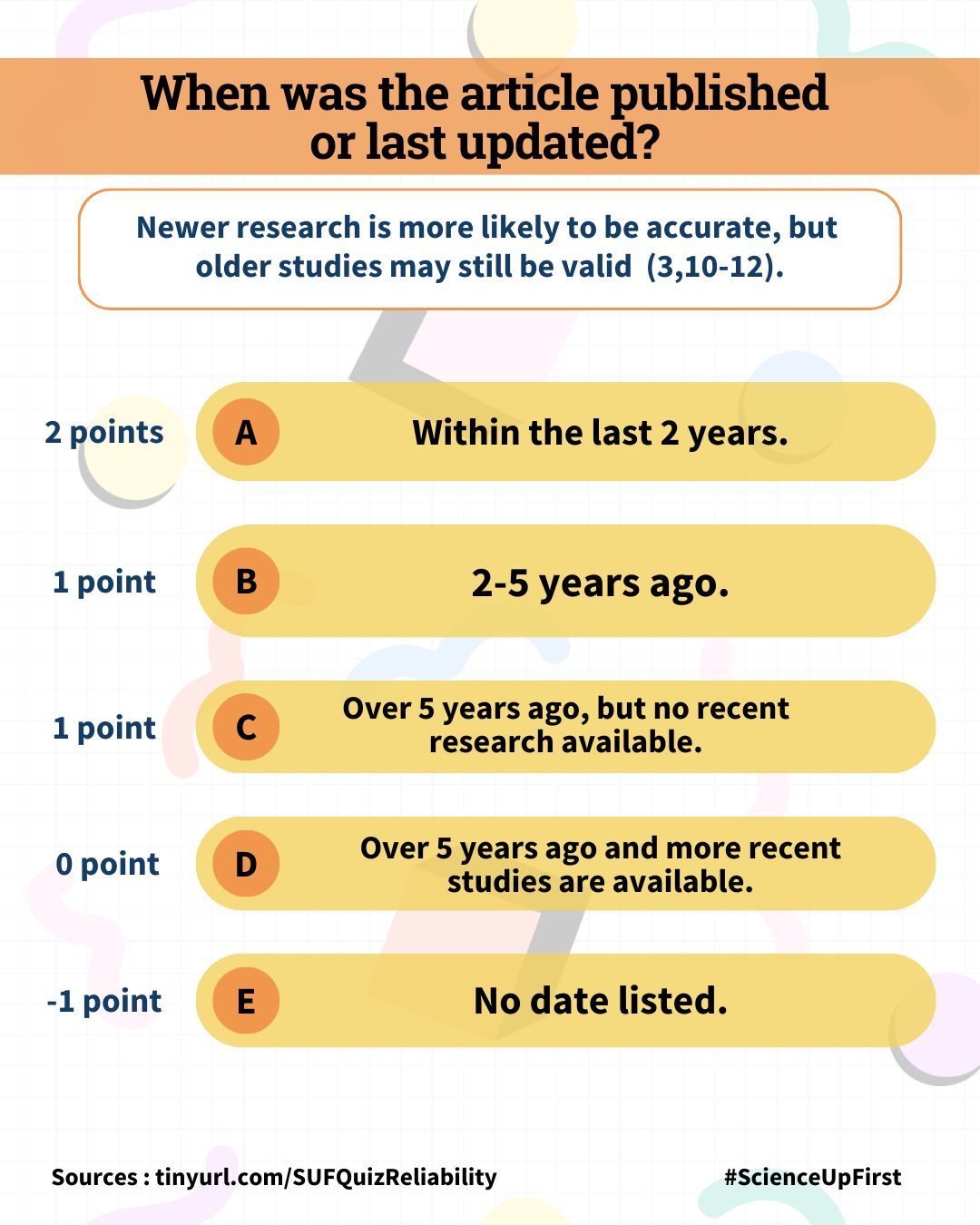
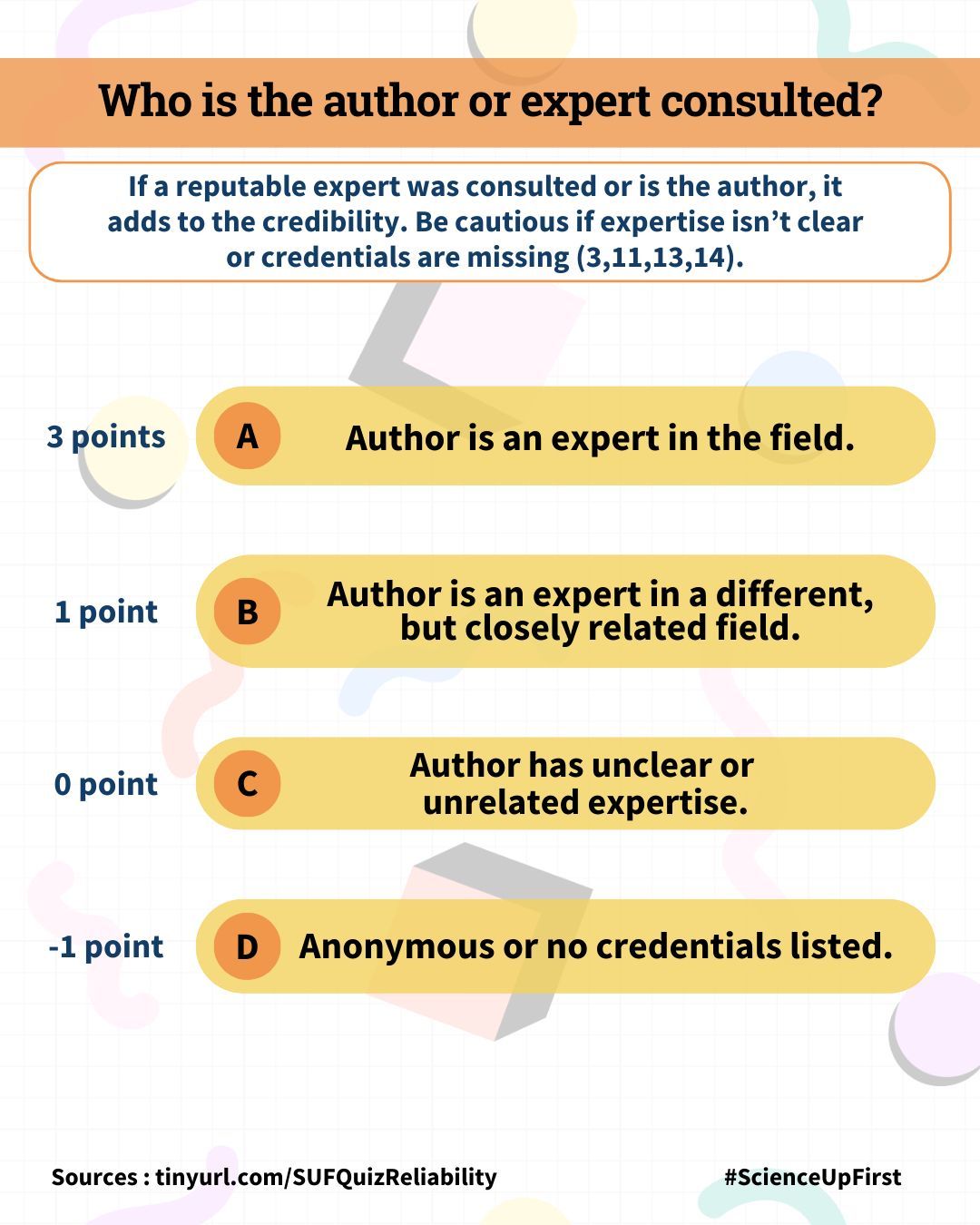
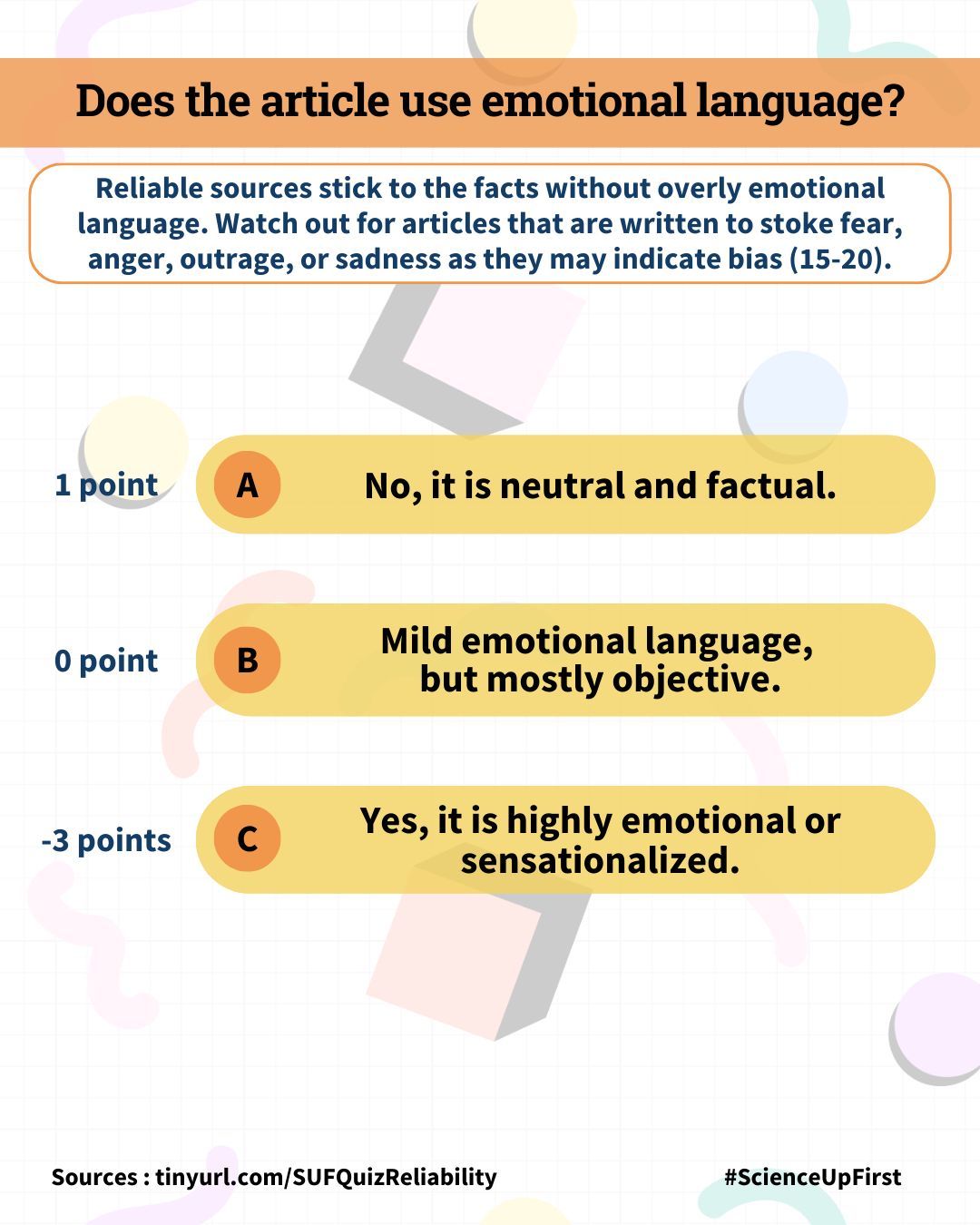
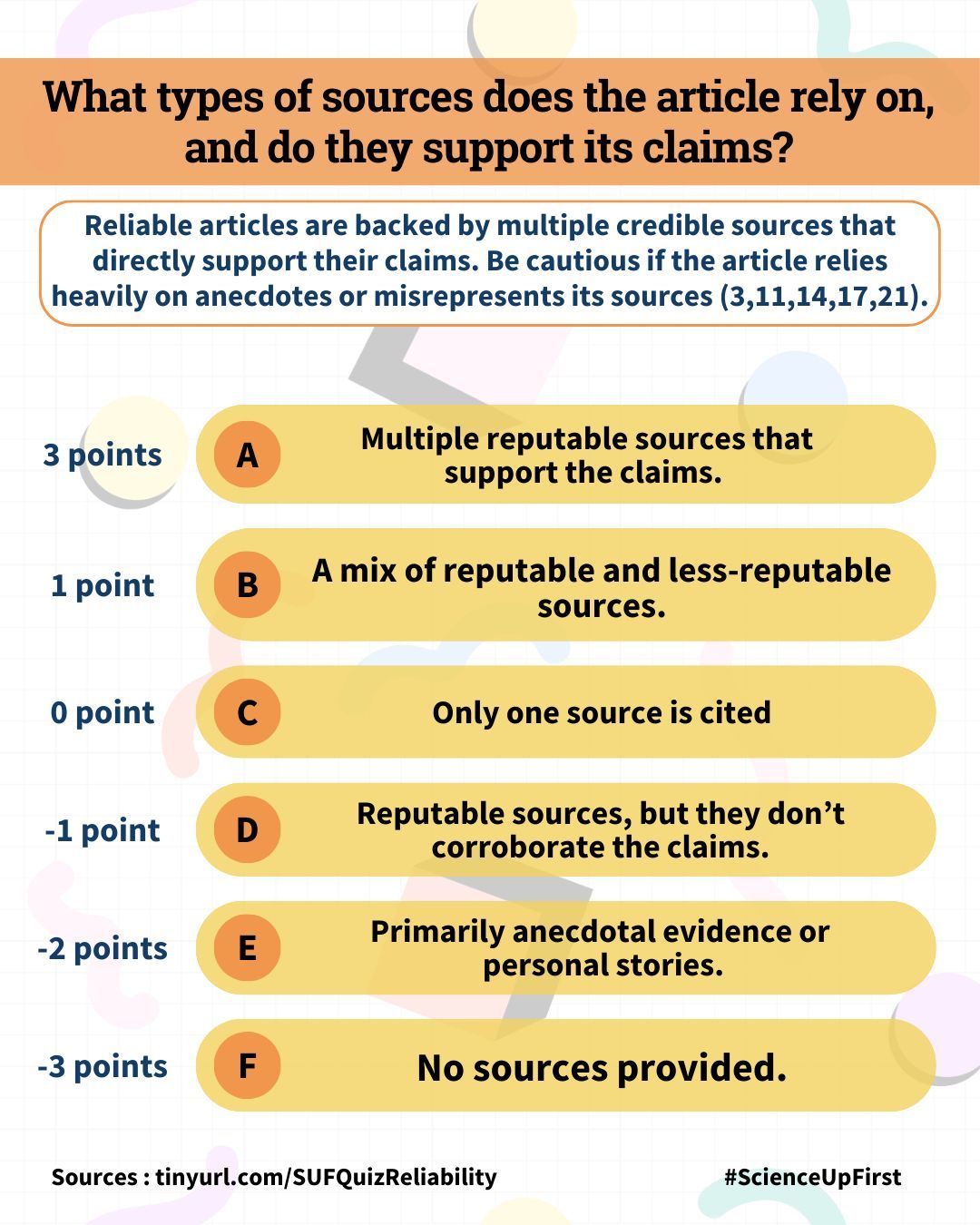
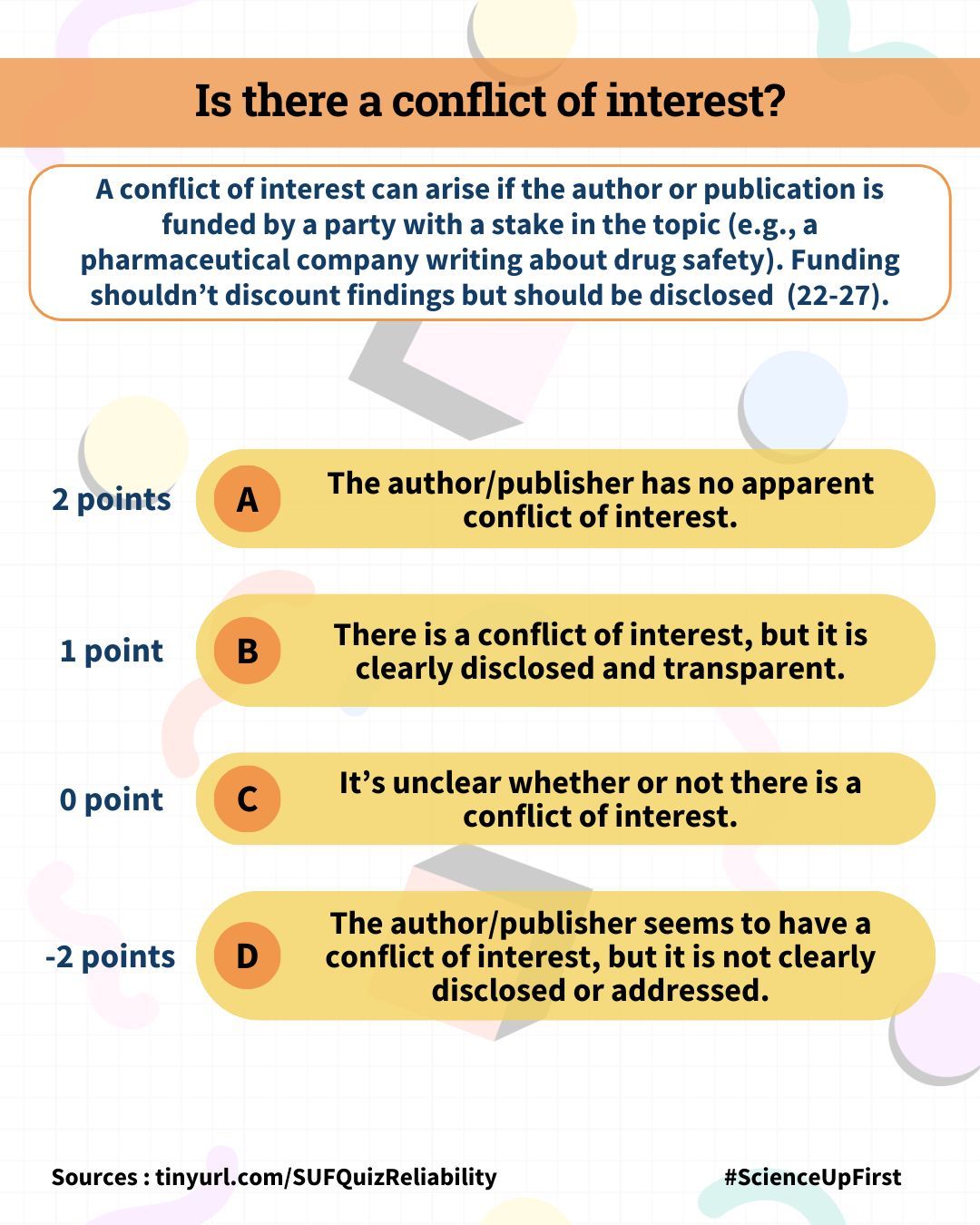
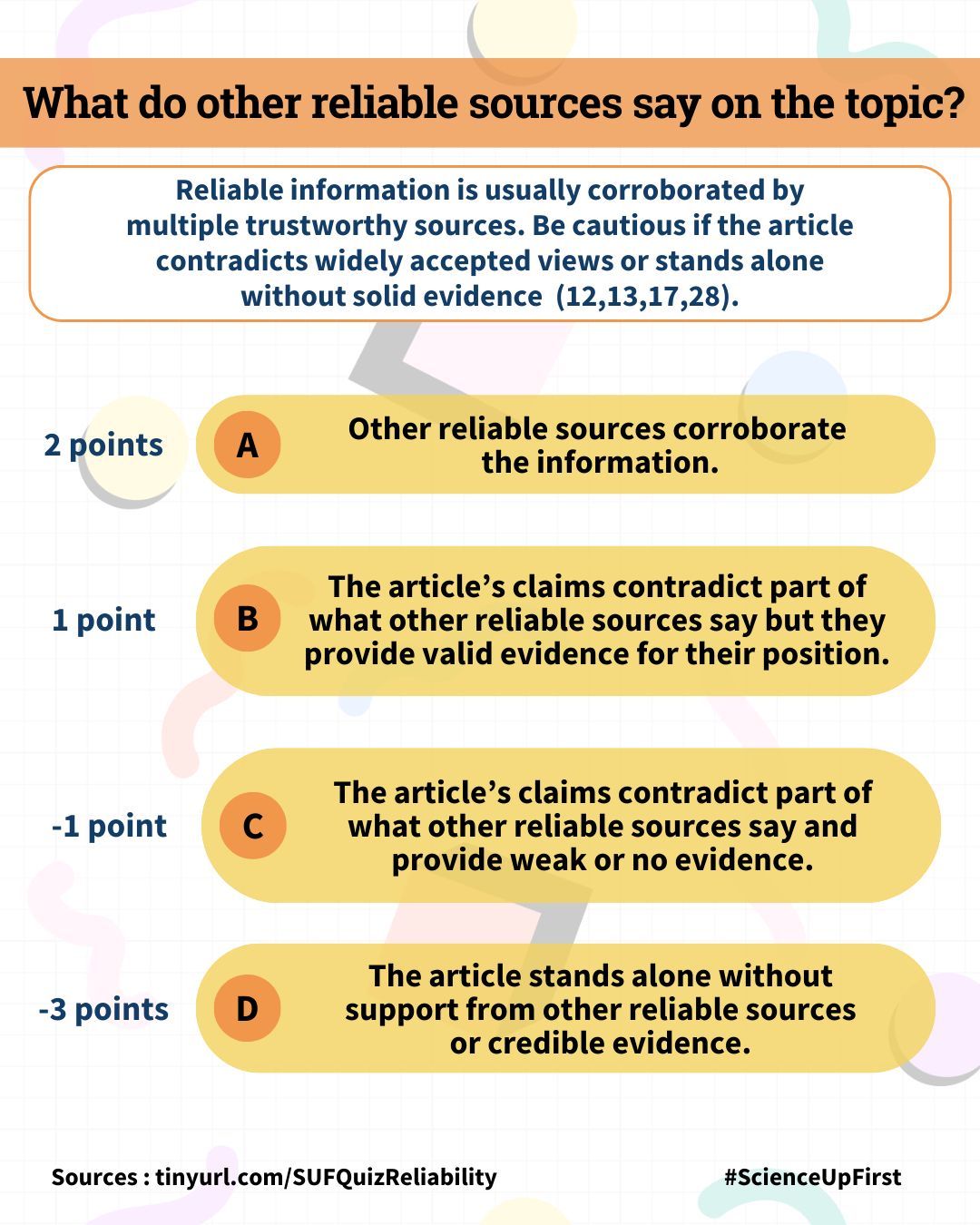
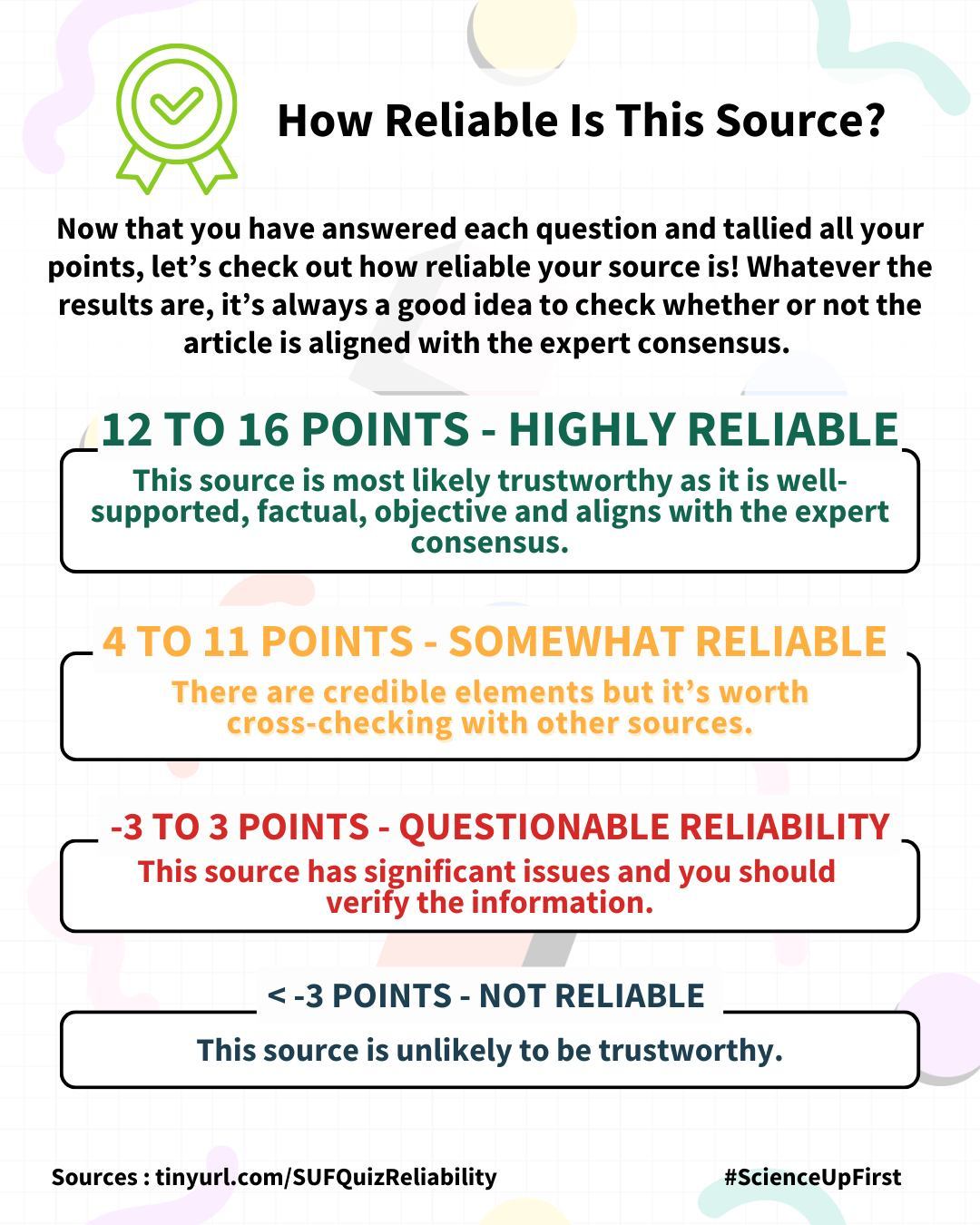
Can you trust the article you are reading?
Take this quiz to find out how reliable your article’s source is.
Answer the following questions:
- What type of source is it?
- When was the article last published or updated?
- Who is the author or expert consulted?
- Does the article use emotional language?
- What types of sources does the article rely on, and do they support its claims?
- Is there a conflict of interest?
- What do other reliable sources have to say on the subject?
Then calculate your score to get an idea of the quality of your source*.
*Keen fact-checkers may note that this scoring system can be overly simple. It’s impossible to assign a single credibility score to all blogs, all news, or all scientific publications because there is a lot of variation within each category. Scientific publications get a high generic score, but not all published scientific studies are equal (1). Likewise, some blogs and news stories are blatantly false, while others are very credible – if they reference high-quality studies and expert interviews. Hopefully the combination of all quiz questions will help tease out these nuances.
- Hierarchy of Evidence | ScienceUpFirst | April 2024
- How does a scientific paper get published? | ScienceUpFirst | September 2023
- What is Misinformation and Disinformation? | Toronto Public Library
- CheckThenShare | MediaSmarts
- What Are Credible Sources & How to Spot Them | Scribbr | May 2024
- How to Identify Reliable Information | Stevenson University
- Introduction to systematic review and meta-analysis | Korean Journal of Anesthesiology | April 2018
- Predatory Journals
- Preprints Have Not Been Peer Reviewed | National Library of Medicine
- Information in a pandemic flies fast | ScienceUpFirst | June 2022
- How to Spot Fake News – FactCheck.org | November 2016
- SPOT Fake News Online
- You don’t need to be an expert to spot misinformation! | ScienceUpFirst | January 2023
- That Chain E-mail Your Friend Sent to You Is (Likely) Bogus. Seriously. | FactCheck.org | November 2014
- Misinformer Tactic: Stirring Up Emotions | ScienceUpFirst | July 2024
- Misinformer Tactic: Make you angry | ScienceUpFirst | July 2021
- Misinformation Red Flags | ScienceUpFirst | October 2022
- Anger, Fear, and Echo Chambers: The Emotional Basis for Online Behavior | SageJournal | April 2019
- Anger can make fake news viral online | Frontiers | August 2022
- Reliance on emotion promotes belief in fake news | Cognitive Research: Principles and Implications | October 2020
- Why do our brains love anecdotes? | ScienceUpFirst | June 2024
- Let’s go through the process of funding | ScienceUpFirst | July 2023
- Who pays for science? | University of California Museum of Paleontology
- Industry Sponsorship bias | Catalogue of Bias
- Funding in Science | Center for accountability in Science
- Association of funding and conclusions in randomized drug trials: a reflection of treatment effect or adverse events? | JAMA | August 2003
- Relationship between funding source and conclusion among nutrition-related scientific articles | PLoS Med | January 2007
- Can you trust that study? | ScienceUpFirst | March 2022
Share our original Tweet!
Can you trust the article that you’re reading?
— ScienceUpFirst | LaScienced'Abord (@ScienceUpFirst) November 15, 2024
Take this quiz to get a general confidence score for how reliable your source is 👉 https://t.co/kbH7wHieGZ
What score did your source get? Let us know below!#ScienceUpFirst pic.twitter.com/EfJBTQsFZE
View our original Instagram Post!

